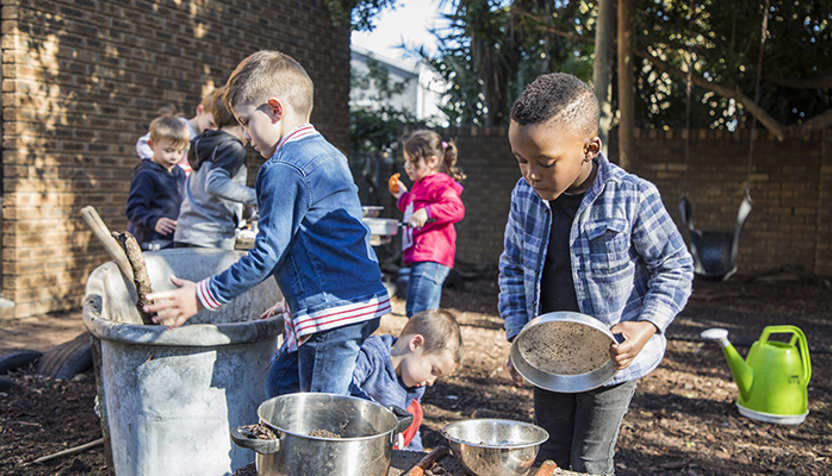
Futureproofing our children through play
09 March 2022
Proper early childhood development (ECD) stimulates brain growth; sparks creative thinking; improves communication, vocabulary and language.
In the first few years of a child’s life, more than one million neural connections are formed each second, a pace that will never be repeated.
Proper early childhood development (ECD) stimulates brain growth; sparks creative thinking; improves communication, vocabulary and language. This is according to the United Nations Children’s Fund (UNICEF) research that also shows that early childhood development promotes impulse control and emotion regulation.
Although learning takes place throughout life, the pace of learning in early childhood will never be equalled again. To maximise this pace of learning, the independent education provider, Curro Holdings has implemented the Curiosity Approach programme across four of its nursery schools.
The Curiosity Approach considers the crucial component of early childhood learning – free and uninterrupted play. An early childhood education setting should be a place where children discover a love for learning through a variety of play experiences.
The programme stems from the UK and has grown to become a world-wide education solution. Its methodology encompasses the latest global trends in ECD, where it has proven to be more successful than traditional teaching methods currently being followed by most ECD centres.
Locally, the programme was first implemented in 2019 by Curro Rosen Castle which is now the only official Curiosity Approach School in South Africa. To date, three more schools have joined this programme – Curro Fourways, Curro Chartwell and Curro Bryanston.
According to Sally Langerman, Operational Head at Rosen Castle, the Group adopted this approach because of its exceptional global results in developing children holistically. “All children deserve a learning environment where play is recognised as important, where nature is weaved throughout the learning process, where learning also takes place outdoors with the use of all senses and where the focus of the school is on the individual child,” she adds.
“We have seen dramatic results in many areas. Our environment is much calmer with all the bright colours and restricting furniture being removed. It’s unbelievable how this immediately calms the classroom environment. Children don’t run around in the space, they lose that edge, and instead become more intentionally engaged in the environment and the learning process,” says Langerman.
The Curiosity Approach is based on four pillars:
- Uninterrupted free play;
- Changing traditional school settings to a more natural, comfortable and engaging environment that has the child at its centre;
- Reducing visual over-stimulation and instead increasing multi-sensory learning utilising and incorporating nature throughout the day;
- Ensuring children maximize every day of their early years – it’s precious. It should not be spent full of adult directed routines.
Langerman says Curro’s Grade R teachers are thrilled with the quality of learners who are coming through to them and have commented very favourably on their readiness to learn.
The Lego Foundation reports that 94% of businesses say they expect people to learn new skills on the job, and the skills they most want to see are critical thinking, problem-solving, active learning, resilience, stress tolerance, creativity, and flexibility. These skills are closely linked to the five super skills that children develop naturally when they learn through play, which makes it a no-brainer when considering ECD options for your child.
Read the original article here: Classroom Management | Futureproofing our children through play - (insideeducation.co.za)